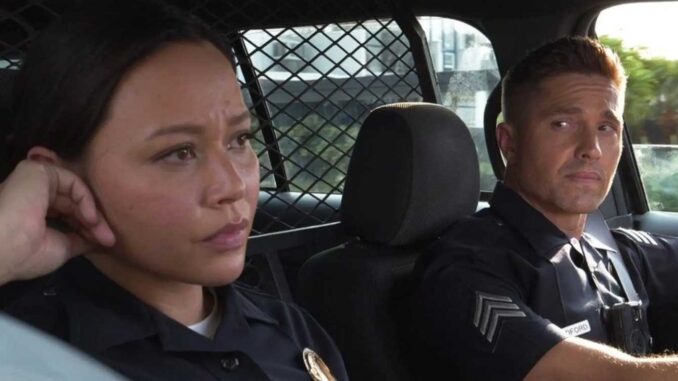
Inside The Rookie Season 8: Creator Explains the Time Jump and What to Expect Next
The hum of the precinct is a familiar comfort, a constant thrum beneath the controlled chaos of sirens and shouted orders. But for fans of The Rookie, the prospect of a hypothetical Season 8 and the creator’s implied explanation of a significant time jump isn’t just about the familiar; it’s about the electrifying possibility of change. Imagine the creator, perhaps in a quiet moment away from the writers’ room, articulating the strategic necessity of such a narrative leap. It’s not a reset, he’d emphasize, but a deliberate acceleration, a narrative chess move designed to breathe fresh life into well-loved characters and unspool new, compelling threads of their ever-evolving stories.
The rationale for such a jump, as any seasoned showrunner knows, is often born from a desire to avoid stagnation. Characters, like people, need room to grow, to face challenges off-screen that then manifest in profound ways upon their return. In the world of The Rookie, where John Nolan started as the oldest rookie on the force, the core premise has, by Season 7, largely run its course. Nolan is no longer a rookie; he’s an experienced P2, a training officer, a husband, a man who has found his footing. To continue to micro-manage every incremental step of his career, or the intricacies of the established relationships, risks calcifying the narrative. A time jump, therefore, isn’t an act of cowardice but one of courageous foresight – a way to acknowledge the natural progression of life and careers, allowing the audience to return to a landscape subtly, yet significantly, reshaped.
So, what awaits us on the other side of this imagined temporal chasm, perhaps a leap of eighteen months to two years? The resounding ripple would touch every corner of the LAPD’s Mid-Wilshire Division.
First, consider John Nolan. No longer merely a P2, he would, by Season 8, likely be wearing the glint of a sergeant’s stripes, or perhaps even have transitioned into a more specialized unit like the Detective Bureau. The time jump allows us to skip the day-to-day grind of promotion boards and instead present a Nolan who has fully embodied the role of leadership. He would stand a little taller, his gaze imbued with years of street wisdom, and his mentorship of newer officers would carry a different weight. We wouldn’t just be told he’s a leader; we’d see him issuing orders with quiet authority, offering counsel drawn from a deeper well of experience. His relationship with Bailey, solidified by time, might be tested by new professional demands, or perhaps, they’ve navigated those waters already, emerging stronger, more interwoven into each other’s lives.
Then there’s the much-adored Chenford. The time jump would force a definitive statement on Lucy Chen and Tim Bradford’s relationship. Have they successfully navigated the complexities of their professional and personal lives, perhaps even exchanging vows in the interim? Or has the pressure, the inherent risks of their jobs, and Lucy’s deep-cover work driven a wedge between them, leaving behind a relationship that exists only in unspoken glances across the briefing room? The beauty of the jump is in the reveal. We wouldn’t witness the agonizing ups and downs, but the mature, perhaps even poignant, outcome. Lucy, having likely completed more intense undercover assignments, would return with a hardened edge, her skills sharper, her perspective broader. Tim, having faced down his own demons and the lingering trauma of his past, might be in a very different place mentally, perhaps even considering a shift away from the front lines, his protective instincts now channeled differently.
The supporting cast would similarly find themselves in new orbits. Angela Lopez, already a force of nature, would be firmly entrenched as a Captain, her leadership tested and proven, her family life with Wesley and their children having reached new milestones. Aaron Thorsen, having fully recovered from his devastating injury, would likely be back on the force, but perhaps with a different approach – more focused, more driven, haunted by the memory of his near-death experience, yet undeniably resilient. Celina Juarez, no longer the wide-eyed rookie with a penchant for the supernatural, would have honed her instincts into a formidable investigative tool, her confidence palpable, her partnership with anyone, even a new character, feeling more balanced and mature.
What to expect next, beyond individual character arcs, is a thematic shift for the show itself. It would move beyond the “rookie” perspective to explore the nuanced challenges of experienced officers, the ethical tightropes of command, and the long-term emotional toll of a life in uniform. Cases might become more complex, reflecting the evolving landscape of crime and policing. The show could delve deeper into the systemic issues facing law enforcement, viewed through the eyes of those who have seen it all.
Ultimately, the creator’s hypothetical explanation of a time jump for The Rookie Season 8 isn’t just about skipping ahead; it’s about a deliberate act of narrative reinvention. It’s an acknowledgment that stories, like life, must evolve. It promises to return us to a world both familiar and refreshingly new, where our beloved characters have weathered the unshown passage of time, emerging not as different people, but as deeper, more complex, and more compelling versions of themselves, ready to tackle the next chapter of their unspooling saga. The anticipation isn’t just for what has happened, but for the thrill of discovering who they’ve become.
